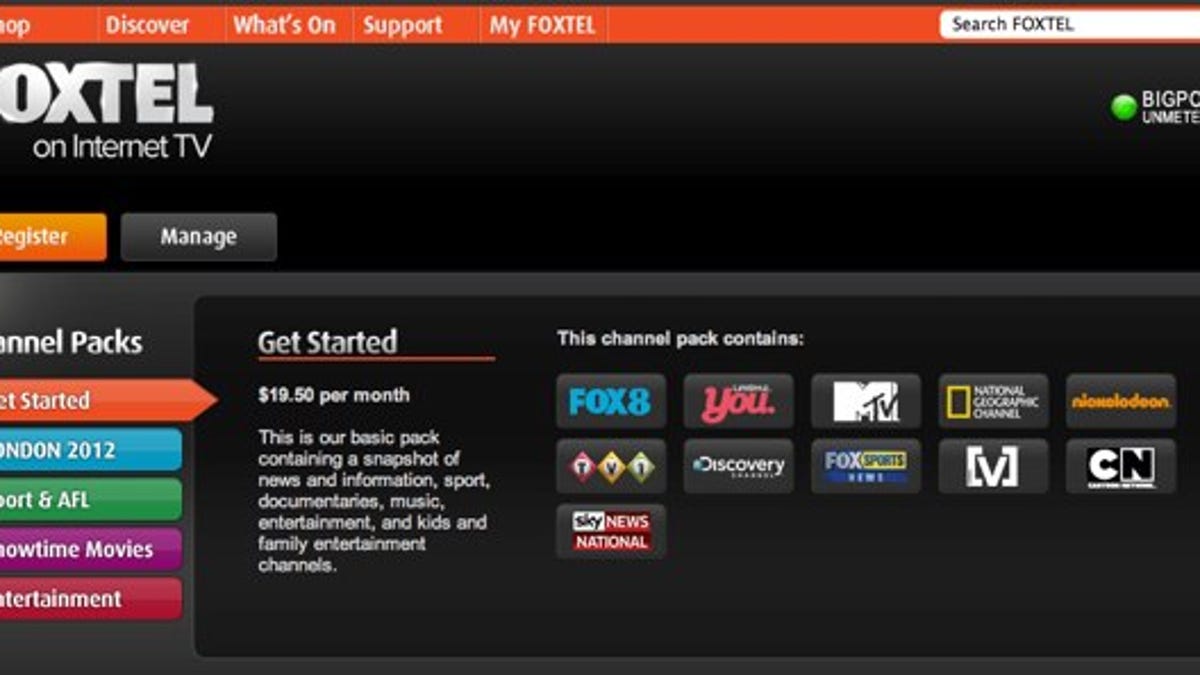Foxtel's IPTV revolution
Foxtel has been thinking outside the box, and with good reason. But can partnerships with Samsung and Xbox help it win as a premium IPTV provider?

This month, Foxtel announced that it would make channels available via Samsung smart TV, adding another IPTV offering alongside its existing relationship with Xbox 360. This isn't a casual change; this is Foxtel fighting for long-term survival.
Foxtel's new internet TV service via Samsung's smart TV platform is priced at the same rate as the Xbox 360 offering. An entry price of AU$19.50 per month gives access to a basic package of channels, with add-on packages available covering sport, movies and entertainment. A full house of Foxtel over IPTV would cost AU$59.50 on a Samsung TV, or AU$74.50 on Xbox 360 (Xbox has two movie packages available). There are slight differences in the channel offerings, with fewer movie channels on the smart TV platform being the most notable difference.
Foxtel has been available on Xbox 360 since 2010 — though it only officially became a nationwide service this month — and marked the beginning of the cable TV provider's exploration of the IPTV market. With the launch of services through the Samsung smart TV platform, it further solidifies an ambition to be available anywhere, no box required, for a monthly fee.
In hindsight, Foxtel's move some years ago to refer to itself as "subscription television" rather than cable is most telling. Over the long term, Foxtel understands that it needs to think beyond the box. Entertainment is now so widely available that a contractual commitment is a harder sell than building loyalty via more easily available contract-free opportunities.
Australia never deeply embraced the cable TV experience the way consumers have in other regions. Hampered by government regulation that supports free-to-air channels in the fight over content rights, Foxtel has peaked at around 30 per cent of the Australian market.
So can making a play to become the premiere IPTV service secure Foxtel a long-term future?
Ultimately, Foxtel is delivering IPTV in the same way as it delivers a standard Foxtel service: a network of channels operating in real time. But the IPTV world seems far better suited to on-demand programming. I sit down when I want, I watch what I want. Foxtel is at its best when accompanied by a Foxtel IQ box, letting you capture the shows you really want from around the wide-ranging schedule to watch them when you please.
For Foxtel, the advantage is currency. Quickflix might now offer a library of on-demand movies and TV shows as part of a flat monthly fee, but finding anything made in the 21st century is a challenge. Foxtel's ability to offer first-run programming is its biggest drawcard, but you need to be watching at the time the program is scheduled.
Should Netflix enter the Australian market, the equation could change again. But we shouldn't expect Netflix in Australia any time soon. Licences for programs and movies are managed on a regional basis, and incumbent Australian players will pay big dollars to maintain their exclusivity over rights if just to keep a big competitor like Netflix at bay.
And those big dollars mean that we are likely to keep paying more to subscribe. Which means that many Australians will keep finding other ways of getting access to content.
Whoever can get the balance just right between on-demand library, exclusive or timely release schedules and price is certainly going to set the Australian IPTV market on fire. Foxtel has a leg-up by having the first two in place. Whether they can hit a price sweet spot before a serious competitor makes a big play is what we're all waiting to see.

